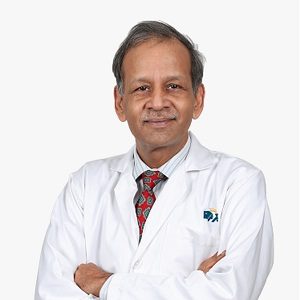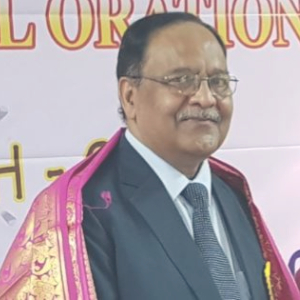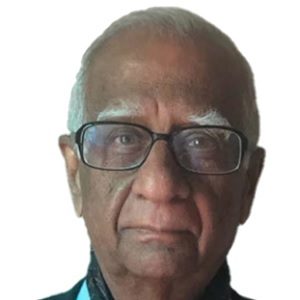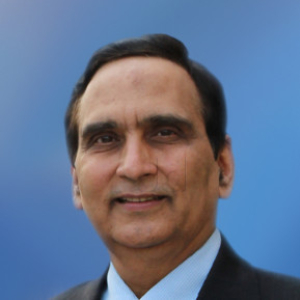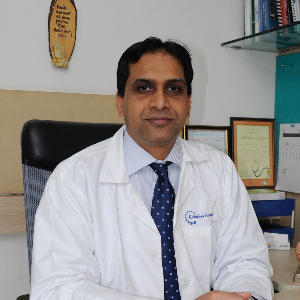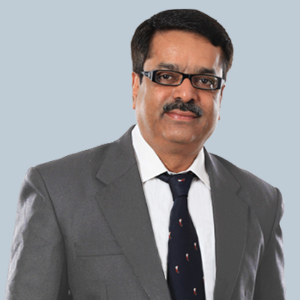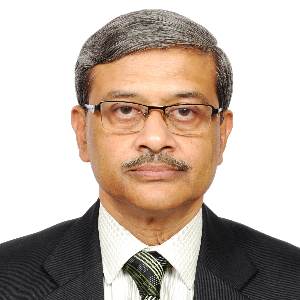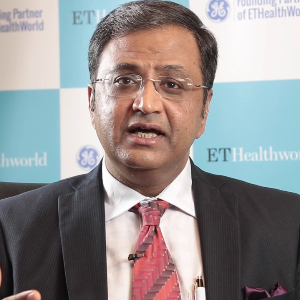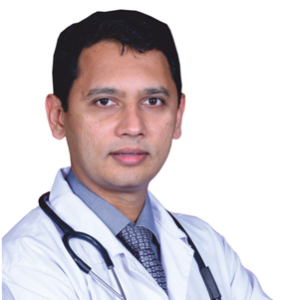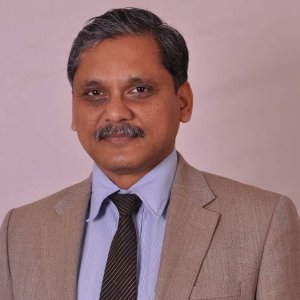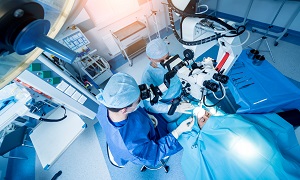Best Brain Cancer Treatment Doctors in India
Here are the most reputed brain surgeons in India for the treatment of brain cancers/ brain cancer surgeries.
- Neurosurgeon, New Delhi, India
- Over 27 years experience
Profile Highlights:
- Dr. Pranav Kumar is one of the best Neurosurgeons in India, having a good success record of over 27 years in performing deep-rooted tumors in the skull.
- Since 1996, Dr. Kumar has been working as a senior consultant neurosurgeon at Apollo Hospital, New Delhi.
- Dr. Pranav Kumar is skilled in surgeries for brain tumors deep-seated at the base of the skull and aneurysms affecting the cerebrovascular system.
- Dr. Kumar specializes in performing the complex ‘Auditory Brainstem Implant,’ where a Bionic device is inserted in the brainstem to recover the hearing capacity in deaf patients who cannot be treated with a cochlear implant.
- He completed microsurgery training at the National Neurosurgical Centre at Beaumont Hospital in Ireland.
- Neurosurgeon, New Delhi, India
- Over 45 years’ experience
Profile Highlights:
- Dr. V K Jain is a leading neurosurgeon in India with refined medical surgical precision.
- Dr. Jain has worked in a variety of significant positions in hospitals all across the world over the course of his career.
- Dr. Jain has also served as a visiting professor at a number of prestigious hospitals throughout the world.
- He has also attended many conferences, workshops, and seminars and has also been invited as faculty to many conventions both in India and abroad.
- Neurosurgeon, New Delhi, India
- Over 60 years’ experience
Profile Highlights:
- Dr. Ravi Bhatia is a veteran neurosurgeon and spine surgeon at Indraprastha Apollo Hospital New Delhi.
- He has about six decades of experience in the management and surgeries of neurological disorders. Before retiring, Dr. Bhatia worked at another prestigious Indian hospital, AIIMS, New Delhi.
- He is particularly interested in Neuro-Oncology, Brain and Spine Tumors, Cerebrovascular Surgery, and Craino vertebral abnormalities.
- To date, Dr. Bhatia has treated neuro patients with a great success rate.
- He authored chapters in many textbooks and has around 95 papers for medical journals to his credit.
- Neurosurgeon, New Delhi, India
- Over 30 years’ experience
Profile Highlights:
- With a super-specialization in Neurosurgery, Dr. S K Sogani is one of the most accomplished neurosurgeons in Delhi and NCR.
- His interest lies in tumor removal surgery, skull base surgery, brain stroke surgery, head injury, micro neurosurgery, different types of spine surgery, and emergency trauma surgery.
- Neuro Surgeon & Spine Surgeon, Mumbai, India
- Over 26 years’ experience
Profile Highlights:
- Dr. Abhaya Kumar is a leading name in the field of Neurosurgery who is an expert in Minimally Invasive Spine Surgery, Brain surgery, and Stereotactic Radiosurgery and has performed more than 1400 spine surgeries and 1100 brain surgeries in KDAH alone.
- Dr. Abhaya Kumar’s primary focus includes Minimally Invasive Spine Surgery (MISS) and has handled over 800 MISS cases till date in the hospital with 96% successful results.
- Neurosurgeon, Mumbai, India
- Over 25 years’ experience
Profile Highlights:
- Dr. Ashok Hande is a renowned neurosurgeon in Mumbai who holds the credit for 300 AVMs, 1400 skull base tumor surgeries, 3600 surgeries for cranial and spinal trauma, 1200 lumbar prolapsed intervertebral disc surgeries, 800 cerebral aneurysms, and more than 100 microvascular decompressions.
- He holds an experience encompassing 25+ years and holds the credit for pioneering neurosurgery in Mumbai by bringing in new and advanced neurosurgical procedures for brain and spine surgery.
- Neurosurgeon, Mumbai, India
- Over 28 years’ experience
Profile Highlights:
- Dr. Deepu Banerji is a leading name in the field of Neurosurgery in India and possesses extensive skills in minimally invasive and micro neurosurgery.
- He has been practicing neurosurgery for over 28 years and is counted among the best microscopic neurosurgeons in the country.
- Apart from minimally invasive surgeries, his expertise lies in skull base surgery, brain tumors surgery, vascular surgery, and spine surgeries, and has handled numerous cases of brain and spine diseases and disorders.
- Neurosurgeon, Chennai, India
- Over 35 years’ experience
Profile Highlights:
- Dr. K Sridhar is a renowned Neurosurgeon who has an experience of 35+ years in brain and spine surgery and has performed over 1000 complex brain tumor surgeries.
- His primary area of interest is skull base surgery, micro neurosurgery, and spine surgery, and is currently working on lesions of the brain stem.
- Neurosurgeon, Bengaluru, India
- Over 22 years’ experience
Profile Highlights:
- Dr. Madhusudan H V is an expert Neurosurgeon in South India with 22+ years of experience in neuro and spine surgery.
- With a specialization in minimally invasive neurosurgeries, Dr. Madhusudan holds the credit for more than 7000 neurosurgeries. He also finds interest in endoscopic interventions and frameless navigations.
- Neurosurgeon & Spine Surgeon, Bengaluru, India
- Over 20 years’ experience
Profile Highlights:
- Dr. Prahraj S S is a leading Neurosurgeon who specializes in all types of neurological surgeries and has performed over 6000 neurosurgeries till date along with complex cranial and spine surgeries.
- He is one of the most renowned neurosurgeons in the country and has provided his services to some of the premier medical institutes in India such as NIMHANS where he performed a large number of spinal surgeries.
Best Brain Cancer Treatment Hospitals in India
Fortis Escorts Hospital, New Delhi
- City: New Delhi, India
Hospital Highlights:
- Over the last 33 years, the Fortis Escorts Heart Institute has set new standards in cardiac treatment with groundbreaking research. It is now known around the world as a centre of expertise for Cardiac Bypass Surgery, Interventional Cardiology, Non-invasive Cardiology, Paediatric Cardiology, and Paediatric Cardiac Surgery.
- The hospital has cutting-edge laboratories that perform a wide range of diagnostic tests in Nuclear Medicine, Radiology, Biochemistry, Haematology, Transfusion Medicine, and Microbiology.
- Fortis Escorts Heart Institute boasts a diverse group of bright and experienced doctors who are backed up by a team of highly qualified, experienced, and devoted support professionals as well as cutting-edge equipment such as the recently installed Dual CT Scan.
- Approximately 200 cardiac doctors and 1600 personnel currently collaborate to manage over 14,500 admissions and 7,200 emergency situations each year. The hospital now has a 310-bed infrastructure, as well as five cath labs and a slew of other world-class amenities.
Rela Hospital, Chennai
- City: Chennai, India
Hospital Highlights:
- RIMC is a multi-specialty hospital in a sprawling area of 36 acres located in Chromepet, Chennai, Tamil Nadu, India.
- The facility has 450 beds including 130 critical care beds, 9 operating rooms, modern reference laboratories and radiology services, and is conveniently located near road, rail and air transportation.
- RIMC is led and managed by world-renowned physicians committed to healthcare.
- RIMC offers the broadest range of clinical care, education, and research. The hospital offers state-of-the-art technology and modern treatment facilities designed to provide health care at an affordable cost.
- Rela Institute is driven by patient needs, comfort and confidence.
CARE Hospitals, Hyderabad
- City: Hyderabad, India
Hospital Highlights:
- CARE Hospitals were established in the year 2000, by CARE Group.
- The multispecialty hospital has 435 beds, including 120 critical care beds, with an annual inflow of 180000 outpatients and 16,000 in-patients.
- The hospital provides specialty medical services in Cardiology, Cardiothoracic Surgery, Pediatric Cardiology, Pediatric Cardiothoracic Surgery, Neurology, Neurosurgery, Nephrology, and Urology.
- The hospital has the first dual source, 128 slice CT scanner (for high precision cardiac imaging) – the first of its kind in south India.
- The hospital offers a wide range of accommodation facilities for the convenience of its varied patient base, ranging from general wards to super deluxe rooms.
Fortis Hiranandani Hospital, Mumbai
- City: Mumbai, India
Hospital Highlights:
- Fortis Hiranandani hospital was established in 2007.
- The hospital is an advanced tertiary care, multi-specialty hospital equipped with 149 beds.
- The hospital is equipped with a super ICU to provide emergency medical care to critically ill patients.
- The hospital is NABH accredited.
- The critical care facility in the hospital is augmented with the state-of-the-art facilities that facilitate speedier diagnosis and efficient monitoring.
- The hospital provides specialty medical services in cardiology, orthopedic science, pediatric science, neurology, diabetic care, urology, nephrology, ENT, obstetrics, gynecology, cosmetic surgery, bariatric surgery, neuro and spine care.
Fortis Hospital, Anandpur, Kolkata
- City: Kolkata, India
Hospital Highlights:
- Fortis Hospital, Anandapur, Kolkata is a world-class super-speciality equipped with the latest technologies in the medical world.
- The hospital is NABH accredited.
- This state-of-the-art facility specializes in cardiology and cardiac surgery, urology, nephrology, neurosciences, orthopaedics, digestive care, emergency care and critical care.
- The hospital, governed by integrated Building Management System (IBMS), has a pneumatic chute system, for quick vertical and horizontal transportation between floors, facilitating speedy transfer of patient specimens, documents, reports, and medicines to the concerned departments.
- The hospital also has a nephrology department with over 28 advanced dialysis units.
Fortis Hospital Banerghatta, Bengaluru
- City: Bengaluru, India
Hospital Highlights:
- Fortis Hospital Bannerghatta, Bengaluru was established in 2006.
- The hospital is a 276 bedded multi-specialty tertiary care facility.
- The hospital specializes in cutting-edge medical technology and dedicated patient care services.
- The hospital is equipped with state-of-the-art technologies like trans-radial angioplasty, trans-abdominal cardiac surgery, and computerized TKR navigation surgery.
- The hospital provides specialty medical services in cardiology, cardiac surgery, orthopedics, neurology, neuro-surgery, GI, and Minimal Access Surgery (MAS).
Fortis Hospital, Malar, Chennai
- City: Chennai, India
Hospital Highlights:
- Fortis Malar was established in 1992 and was formerly known as Malar Hospital.
- The hospital specializes in cutting-edge medical technology and dedicated patient care services.
- The hospital is multi-specialty, tertiary care facility with 180 beds.
- The hospital offers comprehensive medical care in specialties such as cardiology, cardio-thoracic surgery, neurology, neurosurgery, orthopedics, nephrology, gynecology, gastroenterology, urology, pediatrics, and diabetes.
Gleneagles Global Hospital, Parel, Mumbai
- City: Mumbai, India
Hospital Highlights:
- Gleneagles Global Hospital The 450-bed facility comprises of 17-stories, housing state-of-the-art infrastructure, and advanced medical care facilities.
- The hospital offers end-to-end clinical, surgical, and diagnostic services. It is equipped with a team of eminent medical professionals aided by qualified nurses and medical staff
- The Hospital offers advanced Endoscopic procedures, Hepatobiliary and Liver Surgeries, Surgical and Medical Gastroenterology, Bariatric Surgery, and Robotic surgery.
- The hospital is a center of excellence for Orthopedics, Joint Replacement, Knee Replacement, and Hip Replacement surgery.
Jaypee Hospital, Noida
- City: Noida, India
Hospital Highlights:
- Jaypee Hospital is the flagship hospital of the Jaypee Group.
- This hospital has commissioned 525 beds in the first phase and has been planned and designed as a 1200 bedded multi-specialty facility.
- It holds the accreditation of the NABH and NABL.
- The hospital has state-of-the-art infrastructure equipped with the latest technologies and modern equipment like 64 Slice PET CT, Dual Head 6 Slice SPECT CT, Gamma Camera, and Da Vinci Robotic Surgery for comprehensive robotic surgical solutions.
- It has special Centers dedicated to the major specialties to provide hassle-free and high-quality clinical care.
Manipal Hospital, Dwarka, Delhi
- City: New Delhi, India
Hospital Highlights:
- Manipal Hospitals, Dwarka, is a super-specialty hospital in Dwarka, New Delhi, which is a part of Manipal Hospitals Group.
- The hospital aims to provide the best treatment on par with international standards at a fraction of the cost.
- Equipped with 380 beds, the hospital is also one of the new age hospitals which are equipped fully with state-of-the-art infrastructure, cutting-edge technology as well as the latest and advanced clinical practices. The hospital also has 13 modular Operation theatres with 118 beds which are solely meant for critical care.
- The hospital comprises internationally acclaimed doctors and highly professional and experienced hospital and medical staff who are able to provide preventive, therapeutic, and diagnostic services all under one roof.
Brain Cancer
Brain cancer is a condition of the brain in which cancer cells arise in the brain tissue. These cells can grow to form a mass of cancer tissue or tumor, which can interfere with the functions of the brain.
Tumors which are composed of cancer cells are known as malignant tumors, and those which are composed of mostly noncancerous cells are known as benign tumors. Cancer cells that develop from the brain tissue are termed as primary brain tumors, while tumors that have spread from other body sites to the brain are known as metastatic or secondary brain tumors.
Signs & symptoms
The signs and symptoms of brain cancer generally depend on the size and location of the tumor.
Some of the common symptoms include:
- Headaches that are generally worse in the morning
- Nausea
- Difficulty walking
- A lack of coordination
- A lack of balance
- Vomiting
- Difficulty thinking
- Memory lapses
- Speech problems
- Vision problems
- Muscle jerking
- Muscle twitching
- Changes in one’s personality
- Numbness or tingling in the arms or legs
- Abnormal eye movements
- Unexplained passing out
- Seizures
- Drowsiness
It is notable that some of the symptoms of brain cancer are also caused by other, less serious conditions and therefore, if you experience these symptoms, there is no need to panic, but it might be a good idea to consult your doctor to evaluate your symptoms just in case.
Causes & risk factors
What exactly leads to brain cancer is unknown. However, certain factors are known to increase the risk of brain cancer, which includes high doses of ionizing radiation and having a family history of brain cancer. Sometimes, cancer in another part of your body also increases the risk. Cancers in the lung, breast, kidney, bladder, or melanoma, a type of skin cancer, are known to spread to the brain commonly.
Other factors that are related to developing brain cancer include:
- Long-term smoking
- Increased age
- Exposure to herbicides, pesticides, and fertilizer
- Working with cancer-causing elements like lead, plastic, petroleum, etc.
- Having an Epstein-Barr virus infection, or mononucleosis
Diagnosis
Physical examination
Imaging tests
Most frequently, a CT scan is generally used for the diagnosis of brain cancer. This test resembles a series of X-rays, and in some cases, a dye also needs to be injected into a vein for better images of some of the internal brain structures. MRI is also popular due to its high sensitivity for detecting anatomic changes in the brain. This test is even known to detect structures of the brain better than a CT scan.
Biopsy
Other tests might also be ordered by your healthcare provider if they think it is necessary to determine the patient’s state of health or to detect any other health problems.
Treatment
There are various types of treatments for brain cancer. Treatment for primary brain cancer might be different than treatment for metastatic brain tumors.
Generally, treatments for metastatic cancer are more focused on the original cancer site. Depending on the type, size, and location of the tumor, you might receive one or more treatments. Some of the treatment options include:
Surgery
Radiation Therapy
Chemotherapy
Other Medications
Rehabilitation
Prevention
There is no known way for preventing brain cancers. However, early diagnosis as well as treatment is known drastically reduce the risk of metastatic brain tumors. You are also at a lower risk of developing cancer if you:
- Avoid exposure to pesticides and insecticides
- Avoid unnecessary exposure to radiation
- Avoid exposure to any kind of carcinogenic chemicals
- Avoid smoking
However, the exact causes that initiate brain cancer, especially primary brain cancer, is still not known to modern science. Therefore, specific preventive measures are still unknown.

